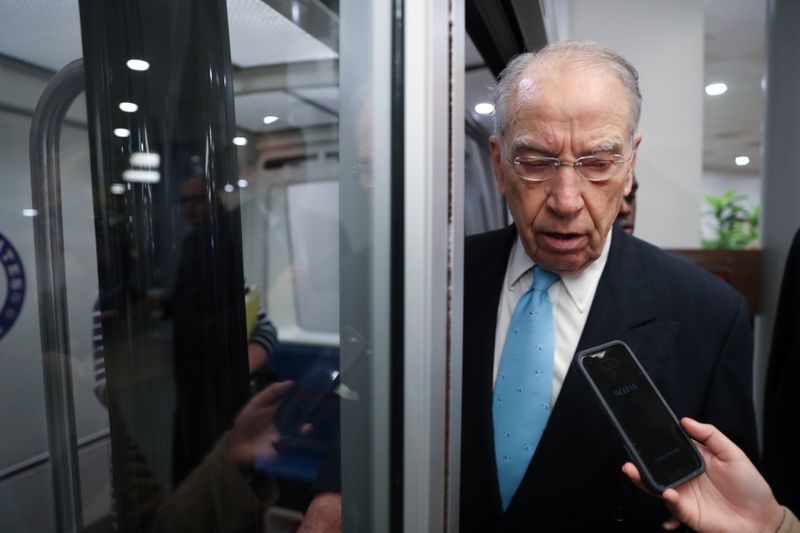By Stephanie Kelly
NEW YORK (Reuters) - U.S. Senator Chuck Grassley said on Tuesday he has been assured by the White House that 2020 biofuel blending mandates will be finalized in accordance with a September agreement between the administration and biofuel and corn producers.
The Iowa Republican's comment reflects the intense pressure on President Donald Trump to appease anger over his biofuel policy in the U.S. Farm Belt, a crucial political constituency in next year's election that has often clashed with his allies in the oil industry.
Grassley said in a call with reporters on Tuesday morning that he had been assured about the biofuel mandates in a recent conversation with Office of Management and Budget Acting Director Russell Vought, and had also held recent conversations on the issue with Trump's economic adviser, Larry Kudlow.
At issue is the Environmental Protection Agency’s annual biofuel blending mandate under the Renewable Fuel Standard (RFS), which details how much ethanol and other biofuels oil refiners must mix into their gasoline and diesel.
The RFS has helped farmers by creating a 15-billion-gallon annual market for corn-based ethanol, but has irritated oil refiners who say the regulation costs them a fortune.
In September, the Trump administration came to an informal agreement with the ethanol industry and its backers to adjust refiner quotas higher in 2020 to make up for the EPA’s recent expanded use of waivers exempting some smaller facilities under financial strain from their blending obligations.
But in October, after pushback from the oil industry, the EPA unveiled a proposal that contained some differences that biofuel producers said amounted to a betrayal of the September agreement.
“I believe Kudlow understands why the market reacted negatively to the proposed rule,” Grassley said.
"I also called OMB acting director Vought on Friday and he assured me that he would work to make sure the rule is finalized according to the agreement that was made on Sept. 12,” he said.
The EPA handed its proposal to OMB late last week, according to an EPA official.
In the September agreement, the EPA agreed to adjust the amount of ethanol that some refineries must blend in 2020 upward based on a three-year average of volumes waived under the Small Refinery Exemption program.
The proposal EPA unveiled in October, however, would have instead used a three-year average of volumes that the Department of Energy recommended should have been waived - which is a smaller figure.

In recent years, the EPA has routinely handed out full exemptions to qualifying refineries even when the DOE recommends only partial relief.